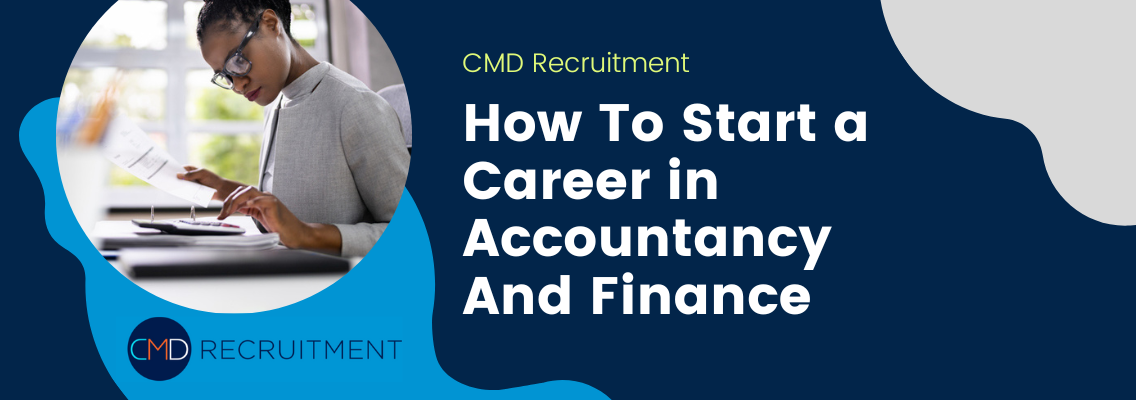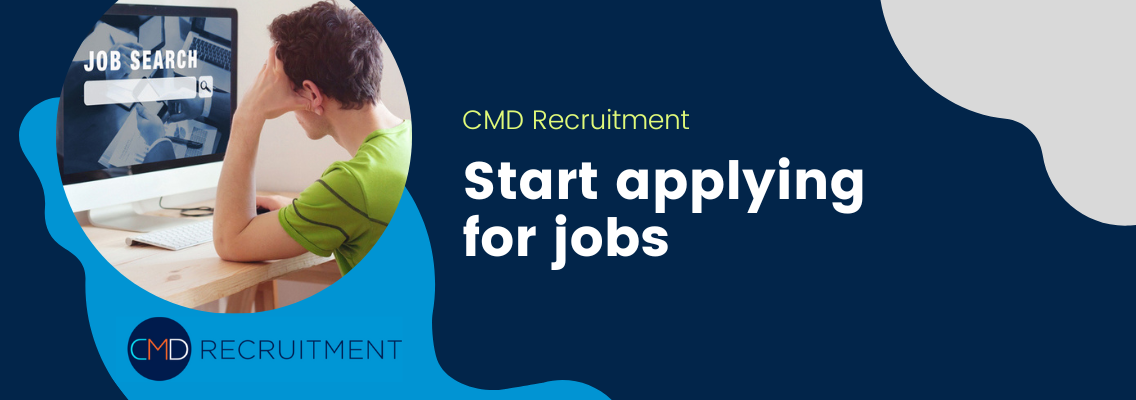Important notice - We are aware of a scam where people are impersonating CMD Recruitment to offer jobs via WhatsApp & Telegram. This is a scam, CMD Recruitment will never contact new candidates via these methods. Any legitmate offer from CMD Recruitment would be made via a telephone call.

November 21, 2022
A career in accounting and finance can be highly lucrative. Jobs in this sector typically command high salaries and are always in demand. If you are a natural with numbers and enjoy a numerical challenge, a career in accountancy and finance could be ideal for you.
In this guide, we will explore how to get started in this field, the key skills you will need to succeed, and how to ensure your application will always stand out from the competition.
There are many different types of accountancy and finance roles, so it’s important to think carefully about what interests your most. If you’re interested in a career in accountancy or finance, it’s important to do your research and find out which area is right for you.
There are many different roles within these industries, from auditing and taxation to financial planning and investment banking. Each role has its own set of skills and knowledge requirements, so it’s important to choose an area that aligns with your interests and strengths.
Once you’ve identified the right area for you, it’s important to gain as much experience and qualifications as possible so that you can stand out in the competitive job market. With the right preparation, you can land your dream job in accountancy or finance.
Training will give you the theoretical knowledge and practical skills you need for the job. When it comes to choosing a career, there are many different paths you can take. Some people opt to enter the workforce straight after school or college, while others choose to further their education with a degree or professional qualification.
While both options have their merits, there are some key advantages to pursuing a degree or professional qualification.
So if you’re considering a career change, don’t overlook the benefits of furthering your education. Conversion courses may allow you to put some of the skills you already have to use while also enabling you to gain the new skills you need to hit the ground running in a new role.

If you’re just getting started, look for entry-level positions or internships to get your foot in the door. Once you have your degree in hand, it’s time to start looking for a job. The best way to find entry-level positions or internships is to search online job boards or company websites.
Many companies post open positions on their websites, and job boards aggregate these postings in one place. To get started, create a list of companies that you would like to work for and then visit their websites to see if they have any open positions. Applying directly to a company will give you a distinct advantage because you will be able to show that you are interested in a specific company, not just any job.
You can also set up Google Alerts for specific keywords, such as “entry-level jobs” or “internships,” so that you will be notified when new postings appear online. Applying for jobs may seem daunting, but with a little effort, you will be on your way to starting your career.
If you want to land a role, you need to attend events, join professional organisations or connect with people online. If you’re looking to break into a new industry, it’s important to start networking as soon as possible.
Attending industry events is a great way to meet potential employers and get your name out there. If you’re not sure where to start, try joining a professional organization related to your field of interest. These organizations often host events and can provide invaluable career advice.
For those who prefer to network online, LinkedIn is a great resource for connecting with like-minded professionals. No matter how you choose to network, remember that building relationships is key. Industry contacts can provide valuable insights, introduce you to new opportunities, and serve as mentors throughout your career.
Even after you have landed your first time, don’t get complacent. Stay up to date with new technologies and trends, and take on additional responsibilities at work. In today’s ever-changing workplace, it’s more important than ever to keep learning and developing your skills.
With new technologies and trends emerging all the time, it can be difficult to stay up to date. However, by taking on additional responsibilities at work and constantly challenging yourself to learn new things, you can ensure that you remain a valuable asset to your employer.
Not only will this help you to advance in your career, but it will also make you more marketable if you ever decide to change jobs. So whatever industry you’re in, make sure you keep learning and developing your skills. It’s the best way to stay ahead of the curve.
If you want to start a career in accountancy or finance, there are a few things you should do. First, research the different types of roles that exist so you can identify which area interests you most. Next, consider getting a degree or professional qualification in order to gain the theoretical knowledge and practical skills required for the job.
Once you have these basics covered, it’s time to start applying for jobs – look for entry-level positions or internships to get your foot in the door. Networking is also important; attend industry events, join professional organizations, or connect with people online to make valuable contacts.
Finally, don’t forget to keep learning and developing your skills; stay up-to-date with new technologies and trends, and take on additional responsibilities at work to expand your experience. By following these steps, you’ll be well on your way to starting a successful career in accountancy or finance.
Back to Blog